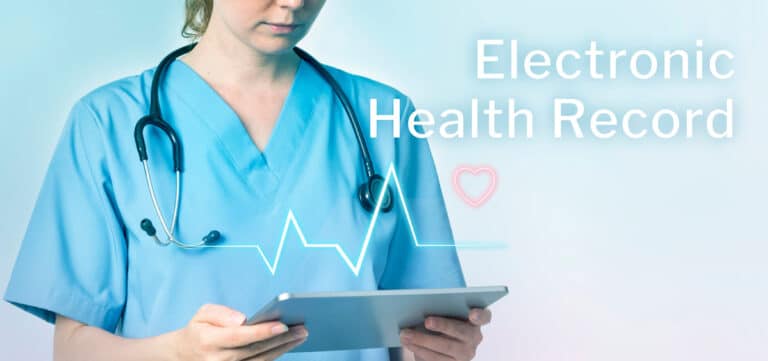Advocating EHR adoption and precision medicine advances
National Health IT Week: Advocating EHR adoption and precision medicine advances
When clinicians, researchers, individuals, and families are able to access the tools and resources they need, people can live safer and much healthier lives. During National Health IT Week, President Obama renewed commitment to enhancing the health of citizens using breakthrough technologies and reaching for the next frontier of innovation.
Companies that use EHRs report substantial success in their capacity to make more beneficial decisions with the more comprehensive information. EHR adoption will give health care providers:
Accurate and full details about a patient’s health. This allows providers to give the most effective care, whether in the course of a routine office visit or in a medical emergency, by presenting the information and facts they need to assess a patient’s current condition in the context of the patient’s previous health record and treatments.
The ability to quickly provide care, In an emergency, EHRs provide quick access to details about a patient’s medical history, allergic reactions, and medications. This can make it possible for providers to make decisions more quickly, rather than wait for information from test results and also to better organize the care they give. This is particularly important if a patient has a dangerous or chronic medical problem, like diabetes.
A method to share information with patients and their family caregivers
What this means is patients and their families can completely be a part of decisions with regards to their health care.
EHRs may additionally flag potentially harmful drug interactions but would help prescribing doctors take a look at options before a problem occurs, check medications and dosages to make sure that pharmacists give out the right drug, and help reduce the demand for potentially risky tests and procedures.
In the last 8 years, the government has invested billions of dollars to promote the adoption of electronic health records, with partners in the public and private sectors actively playing an important role. Electronic health records enable physicians, emergency personnel and to gain access to information promptly and safely – improving collaboration, enhancing decision-making, lowering the risk of errors, and putting people at the center of their care. Due to the government and providers collective efforts, 97 percent of the Nation’s hospitals and three-quarters of physicians use electronic records to take care of their patients.
Recently, the Precision Medicine Initiative, was launched, a daring research effort to speed up innovation and prepare us for a whole new era of medicine – all enabled by digital data. Precision medicine will assist match the most recent treatments to individual needs, lowering health disparities and taking America closer to healing ailments like cancer and diabetes, and getting rid of epidemics. The government also worked to make clear an individual’s legal right to gain access to their health information and send it where they choose – whether it’s to a relative or to their mobile phone. These endeavors help advance goals of promoting the seamless and secure flow of digital health information when and where it is needed most.
Medical care is a team effort. Shared information facilitates that effort. Patients, their families and providers will all benefit when all team members can get in touch with each other effectively and efficiently. The Nation’s health and economy would benefit also. Electronic health record (EHR) adoption demands investment of time and funds, but the benefits would be greater than the costs. It is also when the Practice Management Software AKA Medical Billing Software one data base as the EMR.
Editorial team
Recent Posts
-
How One Practice Not Just Survives, but...
August 11, 2021 -
Impacts of Telemedicine & Telehealth on Healthcare
February 23, 2019 -
What is Cloud Computing?
August 11, 2018
Trending Categories
Tags Cloud
- adoption (1)
- APMS (1)
- appointment reminders (1)
- case study (1)
- cloud (1)
- cloud based ehr (1)
- cloud computing (1)
- cost (1)
- COVID 19 (1)
- data sharing (1)
- decreased (1)
- ehr (2)
- election (1)
- Electronic Health Records (1)
- emr (1)
- Healthcare (2)
- insurance (1)
- interoperability (1)
- MACRA (2)
- meaningful use (1)
- medical (1)
- Medical practices (1)
- medicine (1)
- MIPs (1)
- Obama care (1)
- paper vs. electronics (1)
- physician (1)
- population health (1)
- population health management (1)
- PQRS (1)
- practice (1)
- reimbursements (1)
- Telemedicine (1)
- Telemedicine Tagged healthcare (1)
- the cloud (1)
- trump (1)
- vote (1)
Recent Posts
-
How One Practice Not Just Survives, but...
August 11, 2021 -
Impacts of Telemedicine & Telehealth on Healthcare
February 23, 2019 -
What is Cloud Computing?
August 11, 2018 -
EHR vs. Paper: Are physicians more efficient?
August 11, 2018
